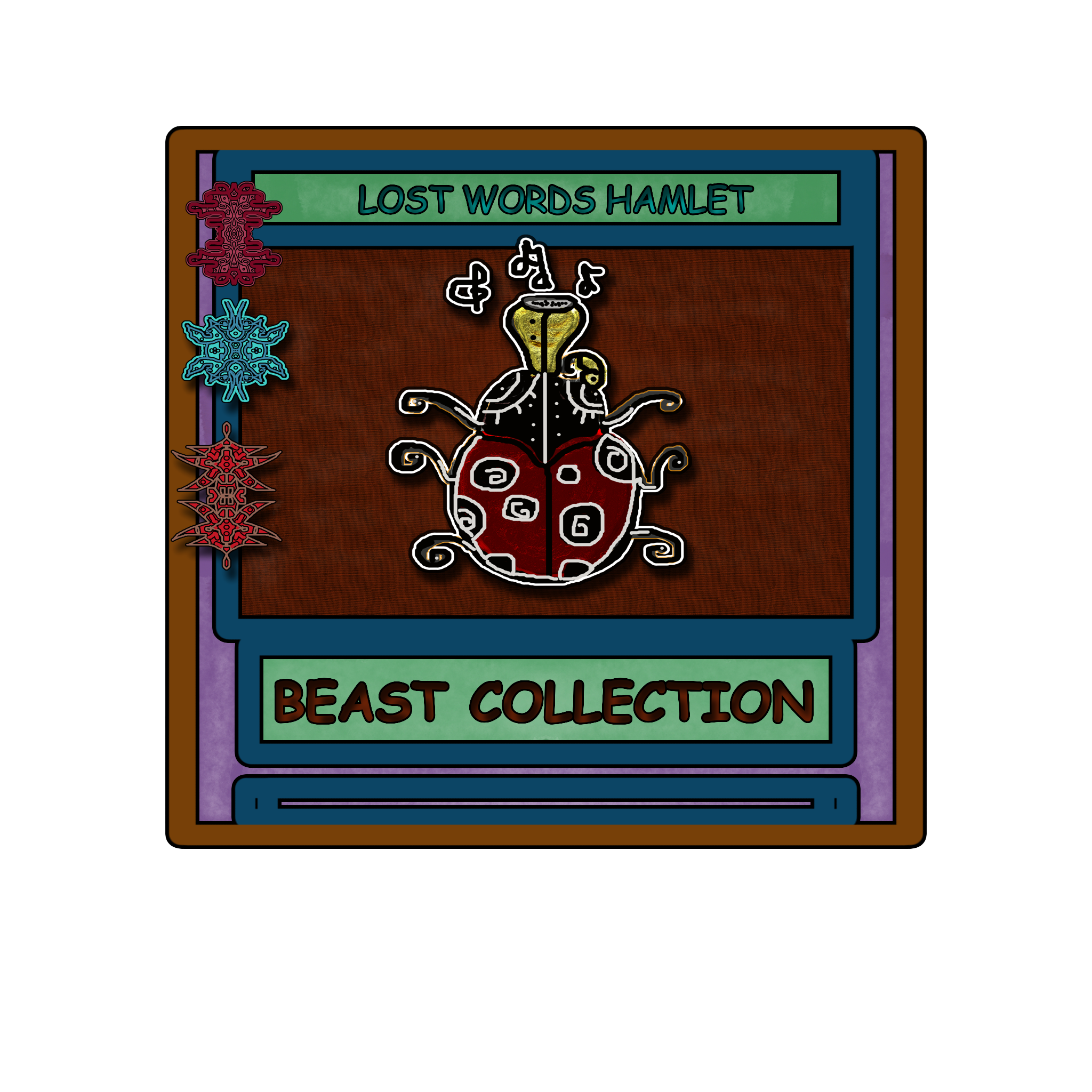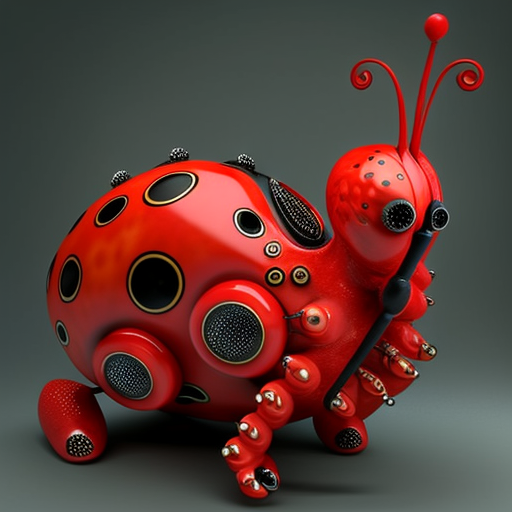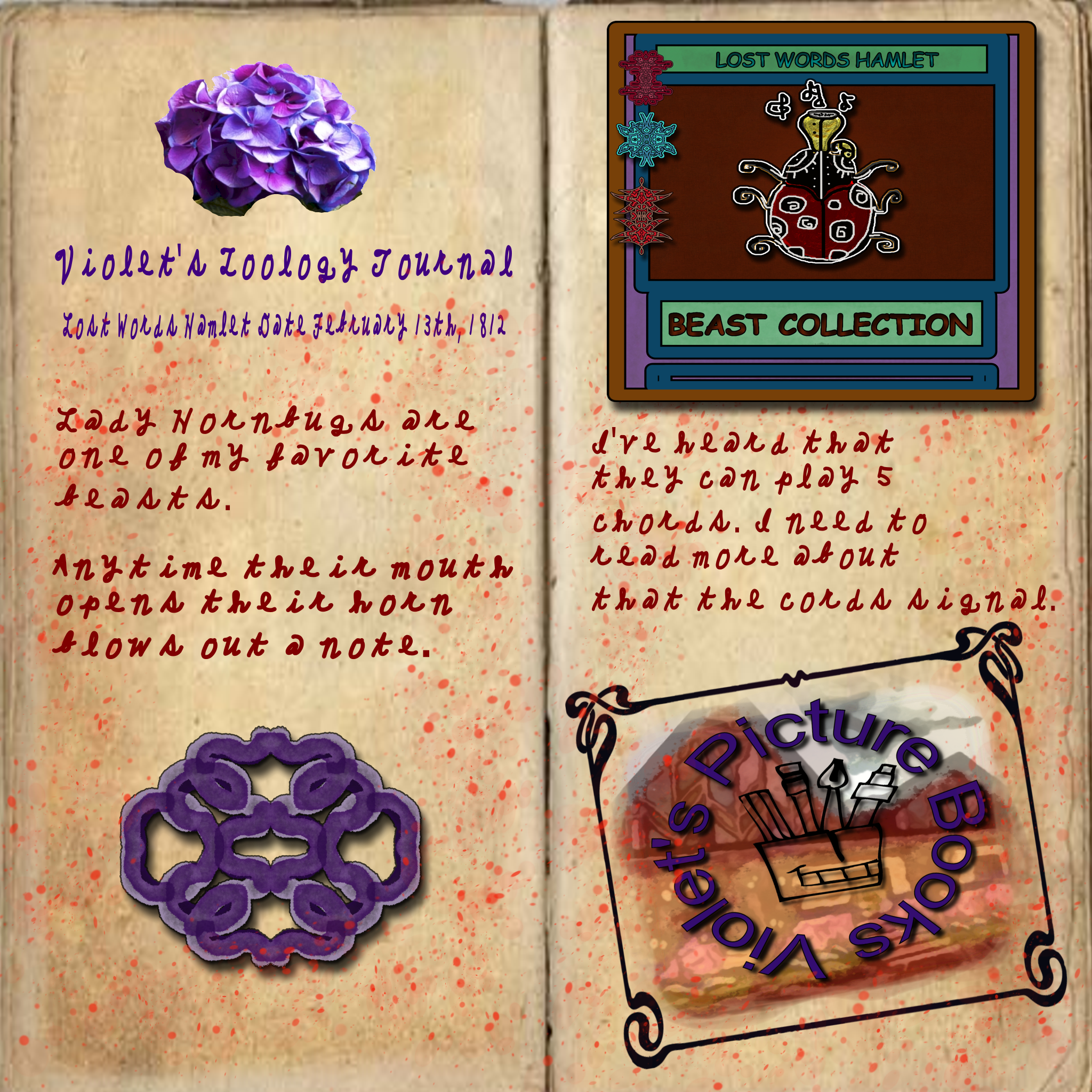Lady Hornbug
Horn
Lady Hornbugs are red with black spots. Their bulbous white eyes that well centered. They easily see sheet music with them.
Basic Information
Anatomy
Their eyesight helps them to see the nearly invisible sheet music. They play on their horn that protrudes from the brow ridge. They do not blow the music through the nostrils. It is a second set of blow holes the horn uses.
Genetics and Reproduction
Eggs tend to be colors of rose. The color camoflauges the eggs after being laid in rosebushes. Females lay 43,002 eggs in a lifetime. Males attend eggs long enough for females lay them. Males then court other females and repeat the process.
Ecology and Habitats
Lady Hornbugs guard Hamlet fruits most of the day. When sunset approaches they return to rosebushes. They are not bothered by rosebush thorns. Rosebushes like other plants love music. Lady Hornbugs have unique abilities to play soothing saxophone music. Hamlet scientists agree that rosebush thorns seem to unfold easily. Lady Hornbugs can sleep protected in a full rose bloom.
Dietary Needs and Habits
Lady Hornbugs eat mites and black or green aphids much like their cousins do. They can allure larger insects into dangerous spider webs when playing music. Spiders commonly award Lady Hornbugs with bits their good fortune.
Additional Information
Perception and Sensory Capabilities
The Lady Hornbug's blowholes are sensitive to wind and flower scent. Hamlet residents plant roses to attract Lady Hornbug that play symphonic music. Professional musicians can't tell the difference between a Lady Hornbug and Finch melody. Other Lady Hornbugs play different jazz, blues and big band music.
Scientific Name
Coccinefinchese
Origin/Ancestry





Comments